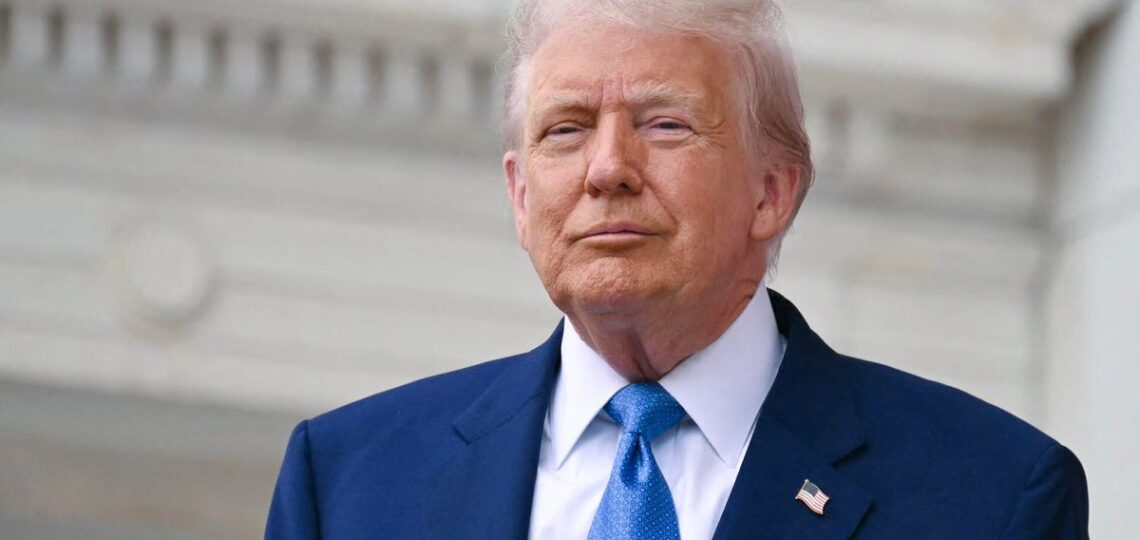
Supreme Court will let Trump administration end program protecting 500K Cubans, Nicaraguans, Haitians and Venezuelans
Washington — The Supreme Court said Friday that it will allow the Trump administration to terminate a program that allowed more than 500,000 Cubans, Nicaraguans, Haitians and Venezuelans to temporarily live and work in the United States while a legal battle over the effort to end the legal protections proceeds.
The high court agreed to grant a request for emergency relief sought by the Justice Department in response to a federal district court order halting Secretary of Homeland Security Kristi Noem’s decision to revoke en masse a grant of humanitarian parole to migrants from Cuba, Haiti, Nicaragua and Venezuela through a special program.
The parole program, known as CHNV, temporarily protected roughly 532,000 people from the risk of deportation.
Justices Sonia Sotomayor and Ketanji Brown Jackson dissented.
Jackson, joined by Sotomayor, wrote that pausing the lower court’s order “would facilitate needless human suffering before the courts have reached a final judgment regarding the legal arguments at issue,” and she lambasted the majority for determining that it is “in the public’s interest to have the lives of half a million migrants unravel all around us before the dissenting courts decide their legal claims.”
Abigail Jackson, a White House spokeswoman, said the administration is confident in the legality of its actions and believes the Supreme Court will rule in its favor if it is asked to decide the merits of the Homeland Security secretary’s blanket termination of parole.
“Just as we always said, President Trump and Secretary Noem acted within their legal authority to revoke temporary status granted to hundreds of thousands of individuals during the Biden administration,” she said in a statement. “The Biden administration’s program violated black letter immigration law, incentivized additional illegal immigration, and President Trump fulfilled his promise by eliminating it.”
The Department of Homeland Security said it can now “once again” begin removing migrants who received humanitarian parole under the CHNV program.
President Trump’s administration has been steadily turning to the Supreme Court for emergency relief as it fights more than 200 lawsuits targeting many policies from the president’s second-term agenda, though many of the court fights involving his efforts to crack down on immigration into the U.S. have led to heightened tensions with the federal judiciary.
The dispute over the administration’s attempt to revoke the temporary legal status granted to 532,000 Cubans, Haitians, Nicaraguans and Venezuelans is separate from other challenges to Mr. Trump’s use of the Alien Enemies Act to deport Venezuelan migrants, which has been blocked by some courts. The high court has also allowed the Department of Homeland Security to revoke protected status for roughly 350,000 Venezuelans for now.
Since 1952, federal immigration law has allowed the executive branch to grant noncitizens parole for humanitarian reasons. The Department of Homeland Security created parole processes for Cubans, Haitians, Nicaraguans and Venezuelans during the Biden administration in late 2022 and early 2023, which required migrants seeking parole to apply through a sponsor who is in the U.S. lawfully and authorized them to work in the U.S. for two years.
The Biden administration created the programs to address the growing number of migrants arriving at the U.S.-Mexico border and said the protections promoted legal immigration. It did not allow those who came to the U.S. with the temporary protections to renew their parole beyond the two-year period.
But soon after Mr. Trump began his second term, he issued an executive order directing the Homeland Security secretary to terminate all parole programs, including CHNV. Acting on the executive order, Noem in March announced the Department of Homeland Security would be ending the CHNV program, with any grants of parole still in effect expiring by April 24.
The move is part of the president’s broader efforts to tamp down on immigration into the U.S., an issue that emerged as a centerpiece of his 2024 campaign for a second term in the White House.
A group of 23 individuals, including several CHNV parolees, and a nonprofit organization challenged Noem’s termination of the program, and a federal district court judge in Massachusetts agreed to halt Noem’s blanket revocation of migrants’ temporary legal status.
U.S. District Judge Indira Talwani found that the secretary could not categorically terminate the grants of parole because federal law required parole to be exercised on a case-by-case basis.
The Trump administration appealed to the U.S. Court of Appeals for the 1st Circuit, which declined to pause the district court’s order pending appeal. The Justice Department then sought the Supreme Court’s intervention.
Solicitor General D. John Sauer argued in court filings that the district court’s injunction nullifies “one of the administration’s most consequential immigration policy decisions.”
He wrote that order had the effect of “needlessly upending critical immigration policies that are carefully calibrated to deter illegal entry, vitiating core Executive Branch prerogatives, and undoing democratically approved policies that featured heavily in the November election.”
But lawyers for the parole beneficiaries warned that absent the relief granted by the district judge, roughly half-a-million Cubans, Haitians, Nicaraguans, and Venezuelans lawfully in the U.S. “would have become undocumented, legally unemployable, and subject to mass expulsion on an expedited basis at midnight on April 24.”
“The secretary is admittedly under no obligation to continue the CHNV parole process that brought class members here, but she nonetheless must respect required procedures and apply the law correctly before revoking their parole and upending their lives and causing mass disruption to their families, employers, and communities,” they told the justices in a filing, adding that allowing the Trump administration to move forward with its mass termination of parole “would cause an immense amount of needless human suffering.”
contributed to this report.